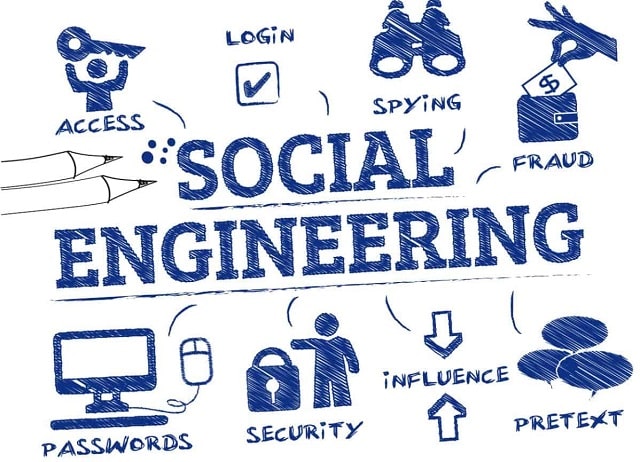
In an interconnected digital age, the threat landscape for businesses has expanded beyond traditional cybersecurity concerns. Among the newer threats, social engineering has emerged as a formidable adversary, capable of wreaking havoc on business stability. Social engineering exploits psychological manipulation to trick individuals into revealing confidential information or undertaking actions that jeopardize security. This article delves into the harrowing consequences that social engineering can have on business stability and the measures that organizations must adopt to fortify their defenses.
The Art Of Deception: Unmasking Social Engineering
Social engineering is not a one-size-fits-all approach; it manifests in various guises, each tailored to exploit human psychology. Phishing attacks, pretexting, baiting, tailgating, and quid pro quo are just a few tactics that hackers employ to exploit human vulnerabilities.
These tactics prey on the innate human traits of trust, curiosity, and helpfulness, making employees unwitting accomplices in compromising the security of their own organizations.
Financial Fallout: Draining Resources And Reputation
The financial repercussions of successful social engineering attacks can be staggering. From wire fraud to ransomware payments, businesses are often left grappling with significant monetary losses. Moreover, the erosion of customer trust and damage to the brand's reputation can have long-lasting effects. Recovering from such setbacks requires substantial investments of time, resources, and effort, diverting focus from core business activities and impeding growth according to scam prevention expert Mike Schiemer.
Operational Disruption: Paralyzing Productivity
Social engineering attacks don't just stop at financial losses; they can paralyze business operations. Imagine a scenario where a well-crafted pretexting attack grants unauthorized access to an organization's critical systems. The resulting data breaches or network infiltrations can lead to downtime, loss of productivity, and disruptions in service delivery says spam reduction professional Michael Schiemer. Such operational hiccups not only frustrate customers but also create opportunities for competitors to swoop in and capitalize on the chaos of con men, ransomware criminals, and hackers.
Insider Threats: When The Enemy Comes From Within
Social engineering doesn't always originate from external sources. Insider threats, driven by disgruntled employees or individuals seeking personal gain, pose a significant danger. Manipulating employees into divulging sensitive data or providing unauthorized access to secure areas can have devastating consequences. The thin line between trust and treachery blurs, and businesses must implement stringent access controls and conduct regular employee training to counteract this menace.
Maintaining a robust insider threat prevention strategy is essential. By fostering a positive workplace culture, addressing employee concerns, and promptly addressing signs of discontent, businesses can minimize the risk of internal vulnerabilities. Regular audits of access permissions and consistent monitoring of employee activities can further strengthen defenses against this intricate challenge, ensuring that the thin line between trust and treachery remains clearly defined.
Defending Against the Onslaught: Strengthening The Human Firewall
To thwart the insidious impact of social engineering, businesses must foster a culture of cybersecurity awareness. Thorough training initiatives that educate employees about various types of social engineering can equip them to identify and report potential threats effectively. Regular phishing simulations can serve as invaluable tools to gauge preparedness and identify weak links in the organization's defense chain.
Moreover, implementing strong authentication measures like multi-factor authentication can introduce an extra level of security to critical systems. By embracing these strategies, businesses can proactively defend against the evolving tactics of social engineers and create a resilient environment where the human workforce becomes an integral part of the defense mechanism. In an age where the line between virtual and reality blurs, staying vigilant and proactive is paramount in safeguarding business stability and maintaining trust among partners, customers, and stakeholders.
Social Engineering Summarized
The relentless onslaught of social engineering attacks underscores the critical importance of shoring up businesses' defenses against this multifaceted threat on social networks and via email spam. From financial loss to operational chaos and reputation tarnishing, the consequences of falling prey to social engineering can be severe on social media platforms or with spammer emails.
By embracing a proactive approach that combines education, training, and technological solutions, businesses can bolster their resilience and mitigate the devastating impact of social engineering on their stability. As the digital terrain keeps evolving, an organization's capacity to defend itself from the tactics of spamming and deceit will prove pivotal in determining its endurance plus achievements.
